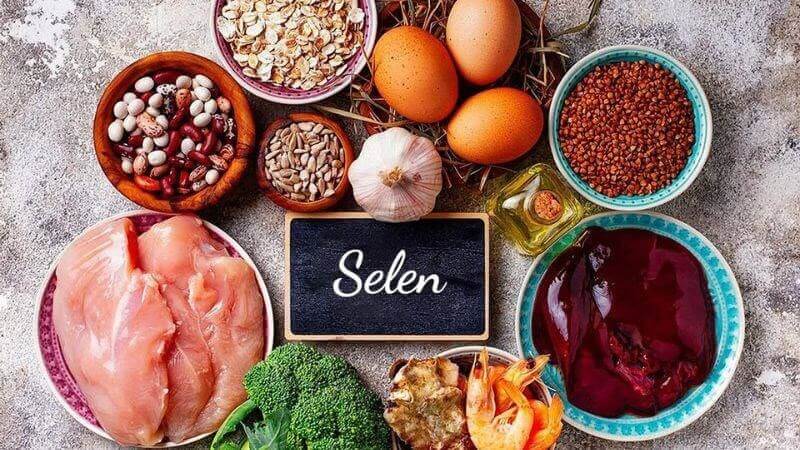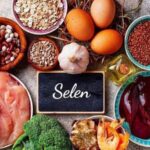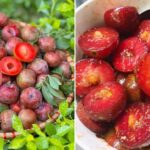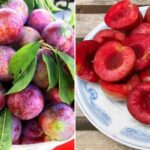Selenium, or selen, is a powerful trace mineral known for its potent antioxidant properties and ability to support the inhibition of malignant cell growth. Dubbed the “King of Cancer Fighters,” this essential nutrient plays a crucial role in overall health, especially for the elderly, despite the body requiring only a small amount daily.
1. What is Selenium and Why is it Called the “King of Cancer Fighters”?
Selenium is an essential trace element that plays a vital role in various bodily functions. A prominent study in Qidong, China, revealed that reasonable selenium supplementation could reduce cancer-related mortality by up to 50% and decrease the risk of liver cancer by 49%.
According to TS.DS Nguyen Trung Tuong (QTN Medical System), selenium protects the body through four crucial mechanisms:
- Immune Boosting: Selenium maintains the efficient activity of NK cells and T cells, the forefront forces in detecting and destroying cancer cells.
- Superior Antioxidant: As an essential component of glutathione peroxidase and thioredoxin reductase enzymes, selenium helps neutralize free radicals and protects cells from damage.
- Inhibiting Metastasis: Selenium contributes to suppressing the invasion and spread of tumors.
- Reducing Side Effects of Cancer Treatments: Cancer patients supplemented with the right dose of selenium often experience significant improvements in hair loss, nausea, and mouth ulcers.

Selenium, the “King of Cancer Fighters,” is an essential trace element that plays a vital role in various bodily functions.
2. Selenium Deficiency: A Silent Enemy of the Elderly
In older adults, the ability to absorb selenium from food decreases over time. Additionally, chronic conditions such as diabetes, cardiovascular disease, and Alzheimer’s also deplete the body’s selenium reserves.
Selenium deficiency in the elderly can lead to:
- Immune system weakness and increased susceptibility to infections.
- Heightened risk of cancer and cardiovascular disease.
- Dry skin, accelerated aging, and wrinkles.
- Decline in memory and slower reflexes.
3. 8 Selenium-Rich Foods That Are Easy to Find and Should Be Eaten Daily
If you’ve never paid attention to selenium or its sources, it’s time to start incorporating these foods into your diet:
3.1 Animal Liver
Animal liver is an excellent source of selenium, iron, and vitamin A, benefiting eyesight, preventing anemia, and boosting immunity.
3.2 Seafood
Oysters, tuna, mackerel, shrimp, and seaweed are extremely high in selenium. Oysters, in particular, are known as the “natural selenium bank.”
3.3 Free-Range Chicken Eggs
Each egg contains approximately 15 mcg of easily absorbable selenium, making them ideal for both the elderly and children.
3.4 Mushrooms
In addition to selenium, mushrooms contain beta-glucan, which helps boost immunity and supports the immune system.

Mushrooms, rich in selenium, help boost immunity and support the immune system.
3.5 Asparagus
Asparagus is the vegetable with the highest selenium content and is also rich in folate, beneficial for cardiovascular health and circulation.
3.6 Nuts: Brazil Nuts, Walnuts, and Sunflower Seeds
Notably, just one Brazil nut per day provides 100% of the recommended daily intake of selenium.
3.7 Whole Grains and Brown Rice
Whole grains and brown rice are excellent sources of fiber, vitamin B, and natural selenium, making them ideal substitutes for white rice in daily meals.
3.8 Spirulina
Spirulina is not only a source of the “King of Cancer Fighters,” selenium, but it also contains protein and other micronutrients that help improve overall health.
4. Guide to Proper Selenium Supplementation for the Elderly
- Selenium Requirement: 60–200 mcg per day.
- Prioritize Natural Sources: Selenium from food is absorbed much better than supplements.
- Consult a Doctor: If considering selenium-containing supplements, seek thorough medical advice.
- Avoid Overdosing: Excess selenium can lead to toxicity, digestive issues, and hair loss.
While selenium, the “King of Cancer Fighters,” is just a tiny trace element, it plays a pivotal role in increasing longevity, preventing diseases, and maintaining cognitive function. For the elderly, daily selenium supplementation through natural food sources is a simple yet essential practice.
The Biggest Mistake Homeowners Make With Shoe Storage: A Costly and Unlucky Blunder
In the realm of feng shui, the main entrance holds immense significance as the first line of defense against negative energy and a conduit of positive energy for the occupants. Its placement is pivotal; any deviation from the optimal arrangement may disrupt the flow of good fortune, prosperity, and even the well-being of the household.





































